Vietnam is the first country to sign the United Nations Convention against Cybercrime.
The signing ceremony and High-level Meeting of the United Nations Convention against Cybercrime (Hanoi Convention) were solemnly held in Hanoi on October 25, 2025.
President Luong Cuong chaired the ceremony with the participation of United Nations Secretary-General António Guterres and leaders and representatives of countries and international organizations.
In his opening remarks, President Luong Cuong stated that with the theme “Fighting cybercrime, sharing responsibility, looking towards the future”, the signing ceremony demonstrates the spirit of international solidarity and the common commitment of countries to build a safe, healthy and sustainable cyberspace.
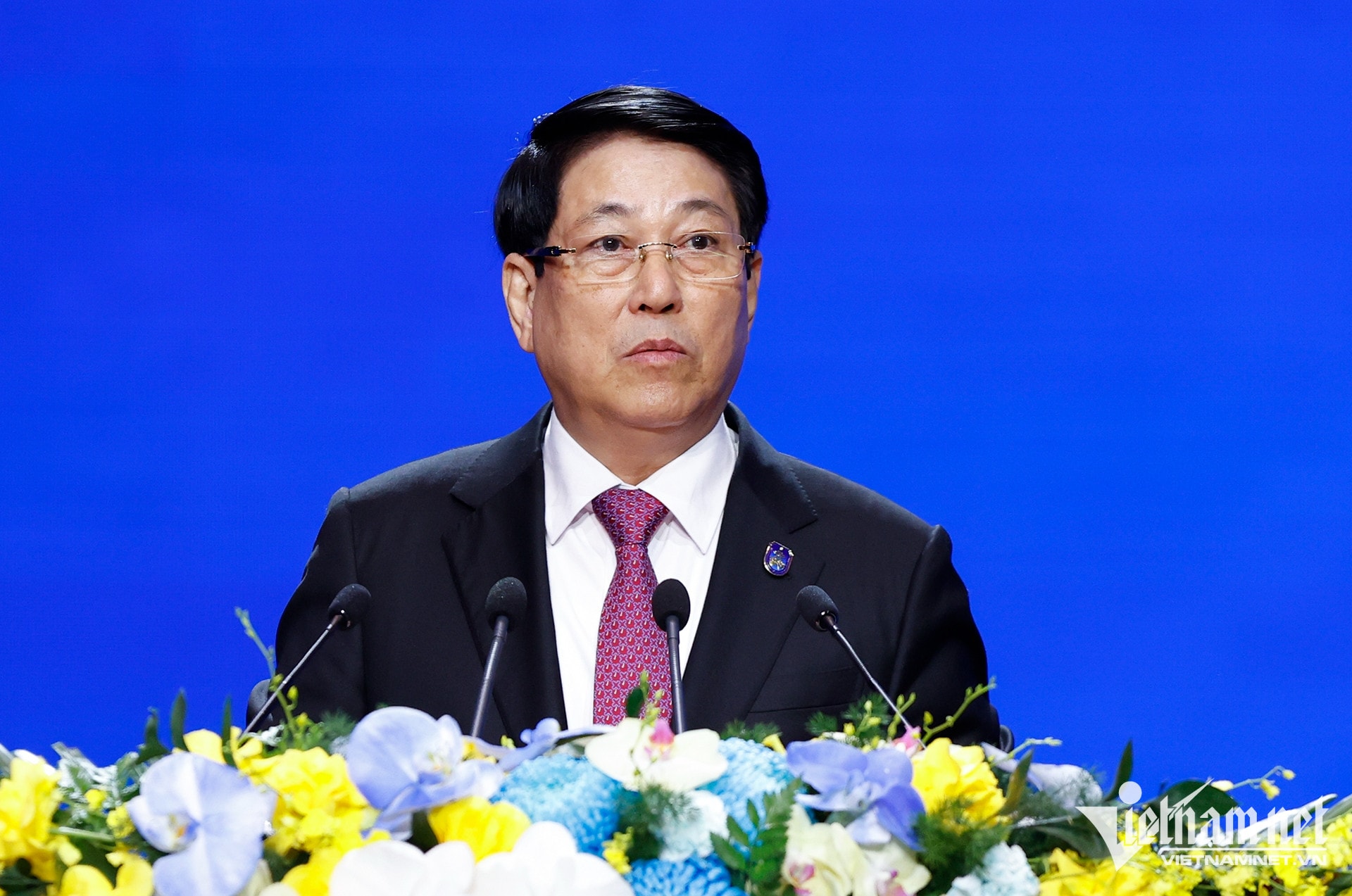
The event not only marked the birth of a global legal instrument, but also affirmed the enduring vitality of multilateralism, where countries overcome differences and are willing to shoulder responsibilities together for the common interests of peace, security, stability and development.
The President said that, along with the remarkable advances in digital technology, cybercrime activities are increasing rapidly in scale, extent and consequences.
Cybercrime has become a direct challenge to the security and development of each country and the life and happiness of each citizen in the digital age. Cyberattacks, data theft, information manipulation, and intrusions into essential infrastructure are becoming increasingly sophisticated and organized, causing trillions of dollars in damage to the global economy each year; people's personal information and safety are also being seriously violated, with children and women being the most vulnerable.
The President emphasized that protecting national sovereignty, interests, security, and cyberspace is not only a requirement of the times, but also a prerequisite for each country to develop rapidly and sustainably, contributing to consolidating peace, stability, and common prosperity.
"The Hanoi Convention - a global multilateral convention on combating cybercrime - is a vivid demonstration of the spirit of solidarity and the rule of law. After five years of negotiations, dozens of discussion sessions and thousands of comments, today's achievement is the crystallization of perseverance, intelligence and trust between countries, when we choose dialogue instead of confrontation, cooperation instead of division," the President shared.
That process converges global values, reflects the spirit of consensus, the vitality of multilateralism and the central role of the United Nations (UN).
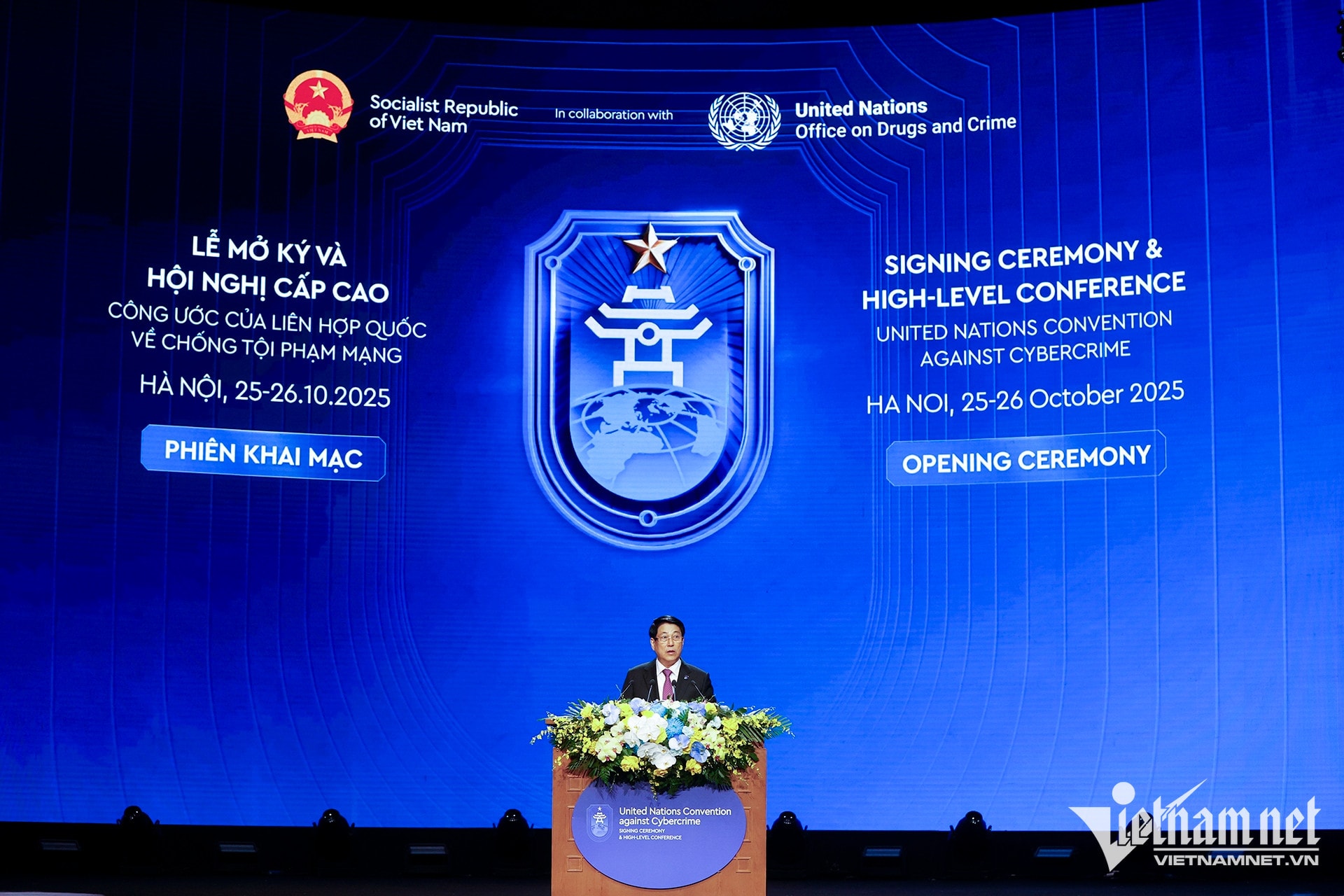
According to the President, the Hanoi Convention sends three messages of profound and lasting significance to the world. That is, affirming the commitment to shaping order, ensuring safety and security in cyberspace on the basis of international law. The Convention promotes the spirit of sharing, companionship and mutual support, because only when we cooperate and improve capacity together can we protect a stable and sustainable cyberspace.
The Convention also emphasizes that the ultimate goal of all efforts is for the people, so that technology serves life, development brings opportunities to all, and no one is left behind in the global digitalization process.
The President affirmed that these three messages clearly demonstrate the core spirit of the Hanoi Convention, a convention of the rule of law, of cooperation and of the people. That is also the motto that Vietnam steadfastly pursues in the process of international integration, taking the law as the foundation, cooperation as the driving force, and people as the subject, center and goal of all efforts.
"Vietnam's hosting of the signing ceremony and being the first country to sign the Hanoi Convention demonstrates our strong commitment to the rule of law, fully implementing international obligations and contributing to strengthening the global legal order in cyberspace," the President said.
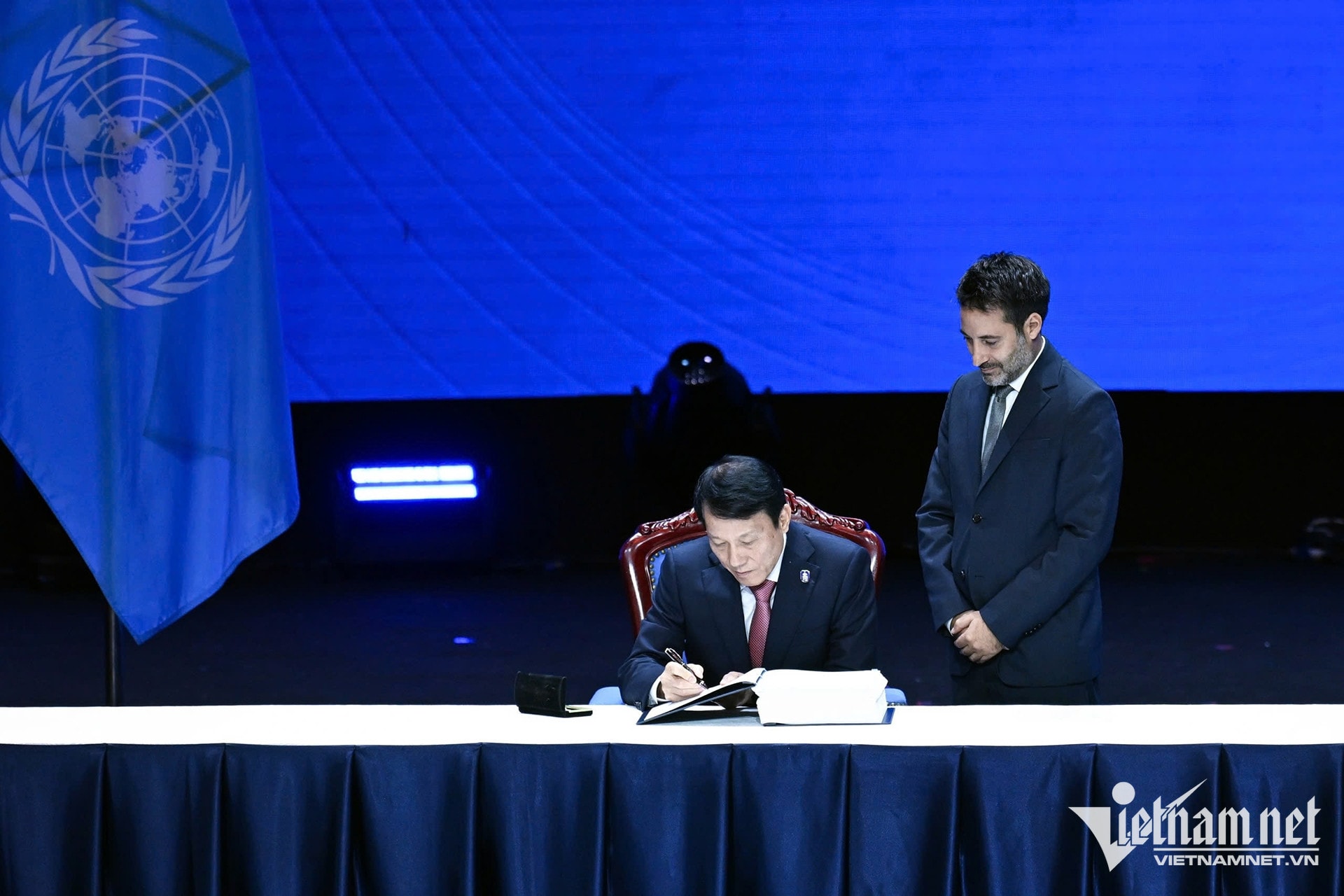
For the Convention to truly come into being, the President stressed, not only political will is needed but also resources for implementation. International cooperation in training, technical assistance and technology transfer will help improve the capacity of countries.
No one is safe until everyone is safe
Speaking at the ceremony, UN Secretary-General António Guterres expressed his impression of visiting Vietnam in 2022, with its promising future and important role in the global electronics supply chain.
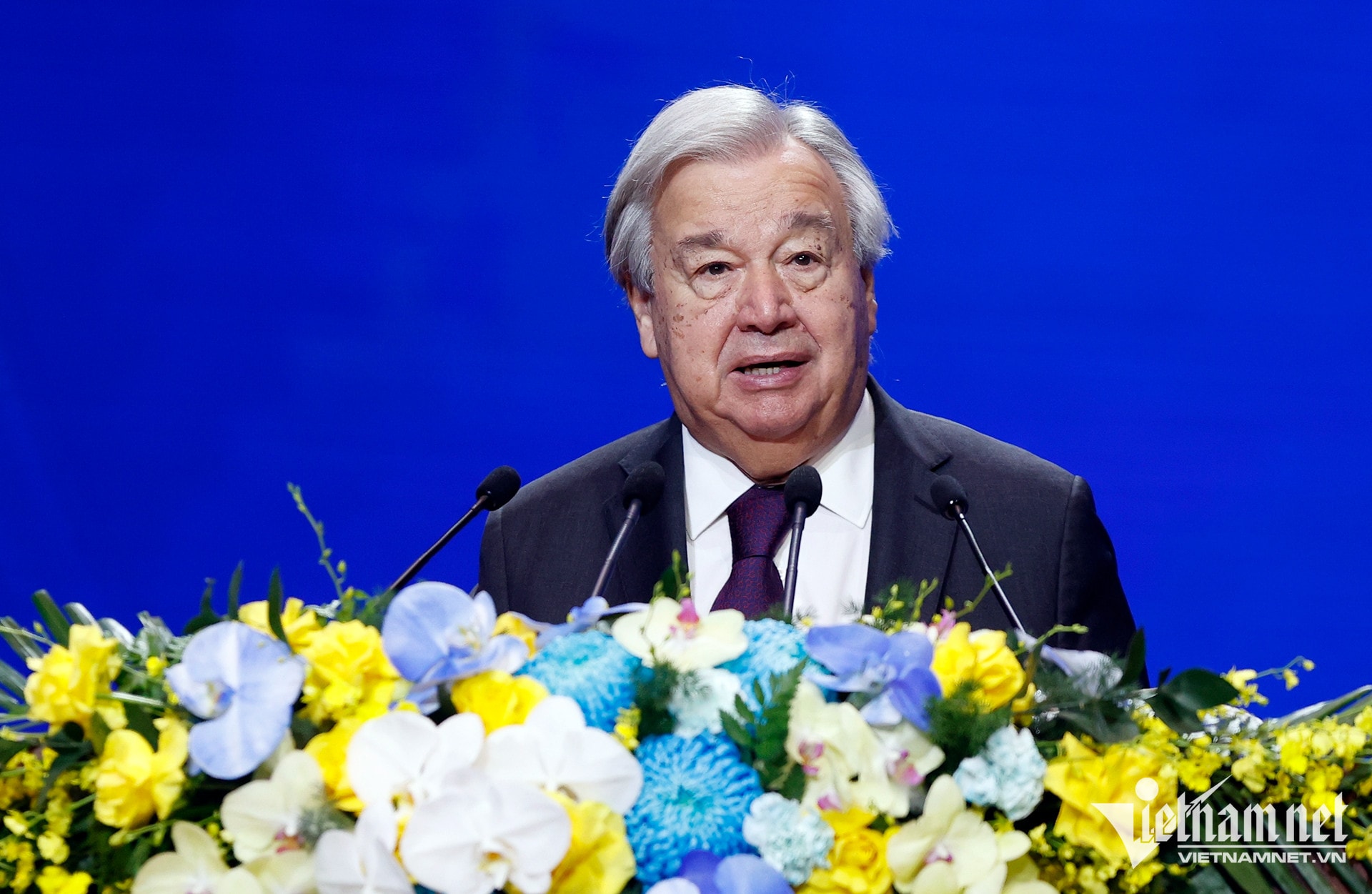
“That makes Hanoi the ideal host for today’s event – a city that embodies the spirit of the digital age: innovation, potential and connection. The UN is proud to partner with Viet Nam to make this important day happen together,” said the Secretary-General.
The digital age has shortened the distances between people and expanded opportunities infinitely, said the Secretary-General. But every technological revolution brings with it a shadow. Cyberspace has become a breeding ground for crime. Every day, sophisticated frauds rob families, destroy livelihoods and drain billions of dollars from the global economy.
In cyberspace, no one is safe until everyone is safe, Mr. Guterres noted, and just one vulnerability can threaten everyone everywhere.
The UN Convention against Cybercrime is a powerful legally binding instrument that strengthens our collective defense against cybercrime.
“This is a commitment that fundamental human rights – like privacy, dignity and safety – must be protected both online and offline. It is also a testament to the enduring power of multilateralism in creating global solutions.
And more than that, it is a commitment that no country, whether developed or developing, will be left alone in the face of cybercrime,” the Secretary-General affirmed.
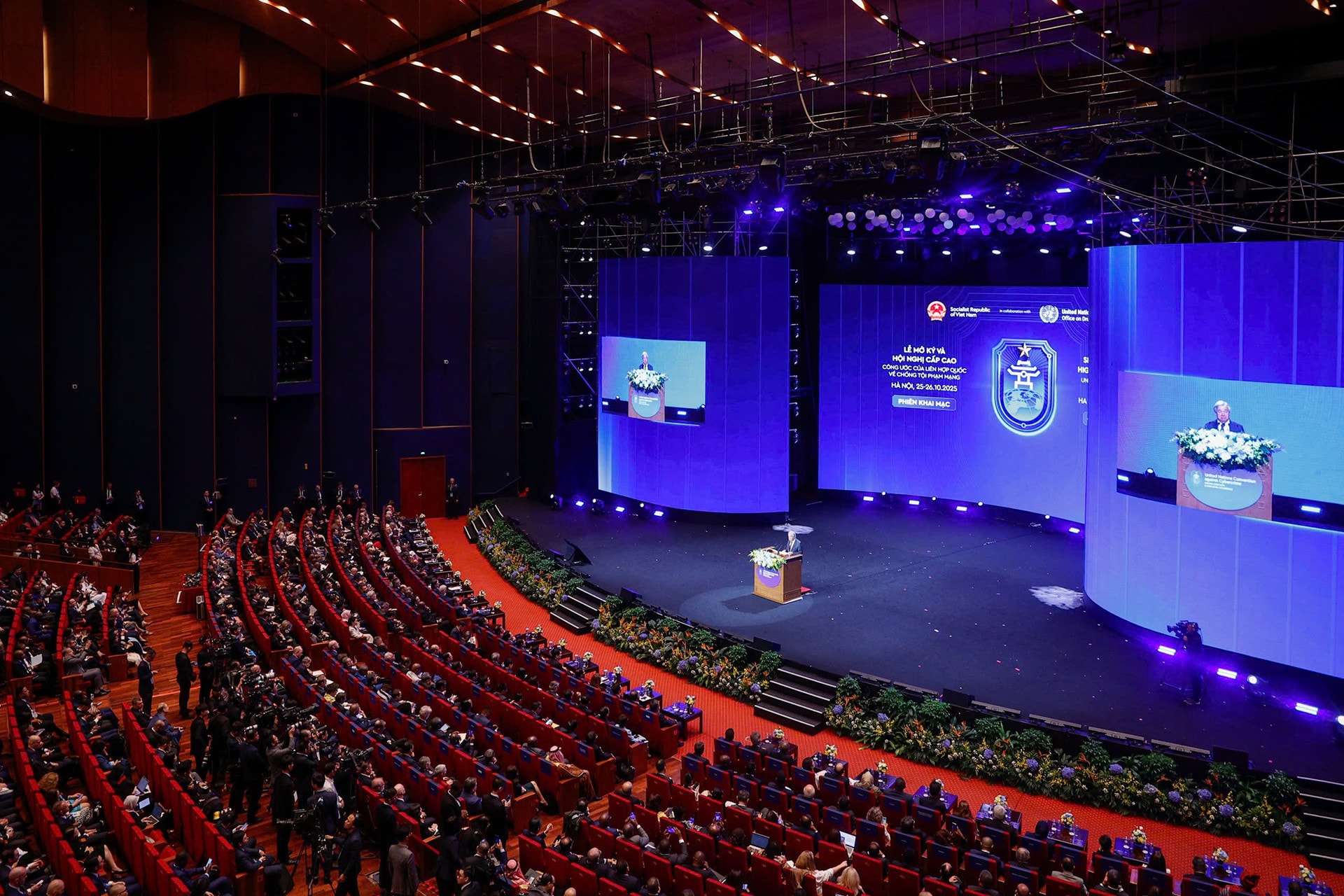
According to the Secretary-General, this is also a victory for victims of online abuse. For the first time, an international treaty recognizes the non-consensual distribution of intimate images as a crime. The convention also encourages enhanced protection for victims, including the right to redress, compensation and the removal of illegal content.
Meanwhile, Ghada Waly, Executive Director of the United Nations Office on Drugs and Crime (UNODC), said that the impact of cybercrime on people is catastrophic, causing them to lose their savings, livelihoods, safety, dignity, and even their lives. The financial losses are huge, with the IBM 2024 report estimating the average cost of a data breach to be close to $5 million.
“We are seeing cybercriminals bring multinational corporations to their knees, wipe out small organizations, and use developing countries as “testing grounds” for new attack technologies,” warned Ghada Waly.
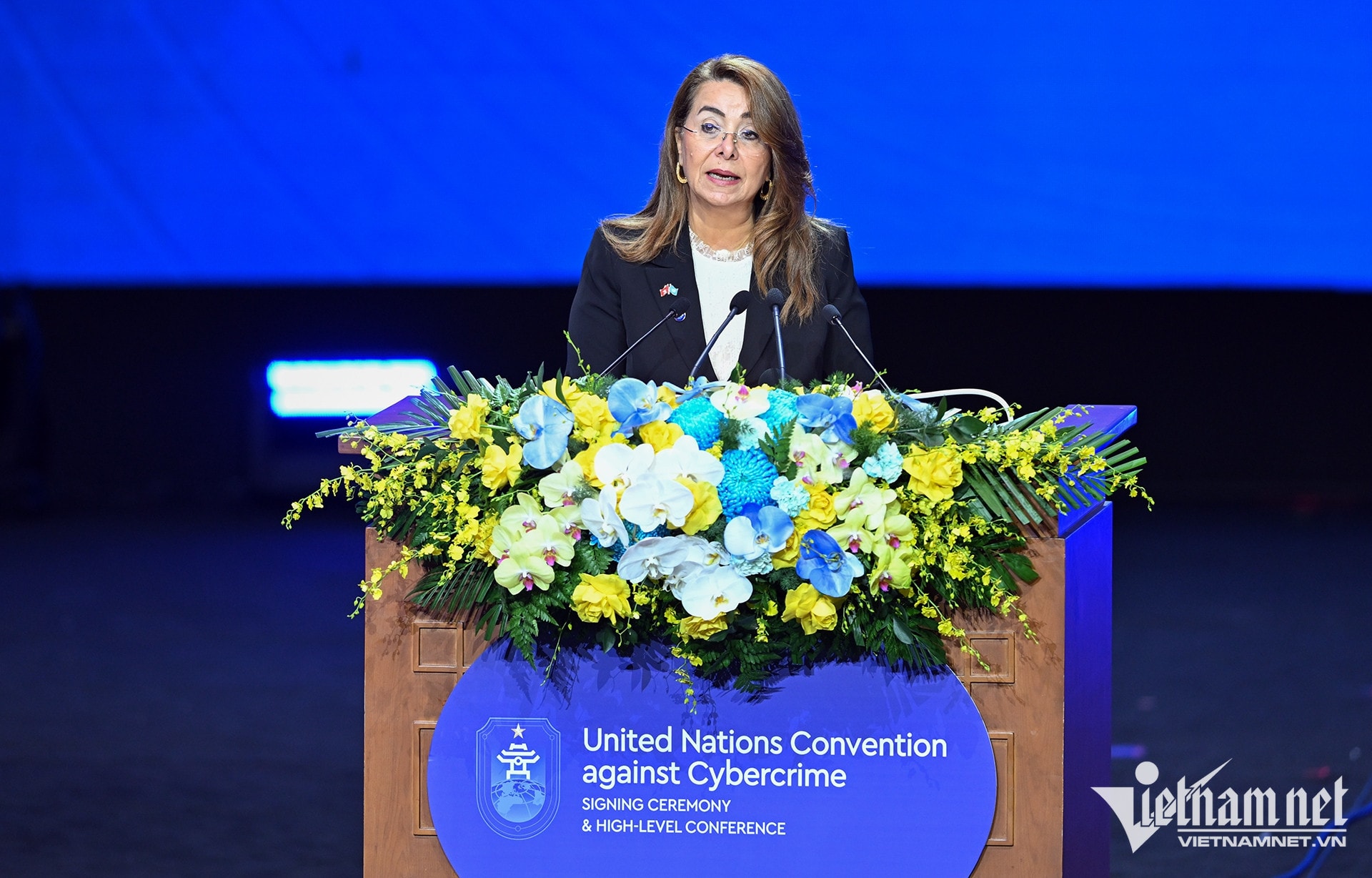
The Hanoi Convention has brought about a unified legal standard, eliminating the “safe zone” for cybercrime; creating a common platform for cooperation on intelligence sharing, judicial assistance and capacity building, open to all countries and compatible with regional mechanisms. The Convention also creates a technology-neutral language, focusing on the crime rather than the tool, helping to adapt to future threats. The Convention also provides a legal basis for criminalizing acts targeting vulnerable groups.
After the opening session, President Luong Cuong and the UN Secretary General witnessed authorized representatives of Vietnam and nearly 70 countries signing the Convention. The Convention will be opened for signature later at the UN Headquarters in New York. According to regulations, the Convention will officially come into force if more than 40 signatory countries ratify and complete internal entry into force procedures.
